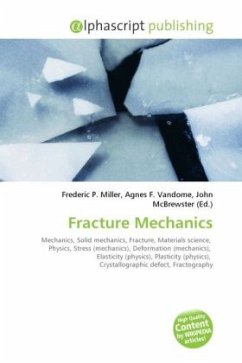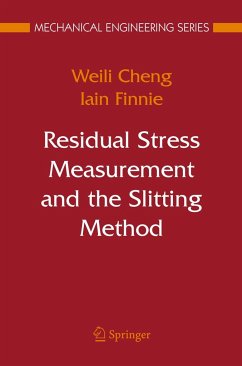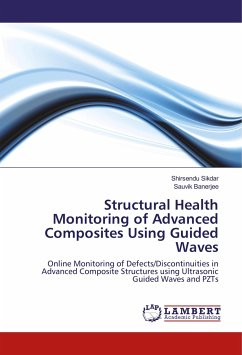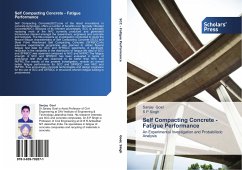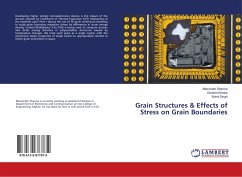
Deformation (Mechanics)
Versandkostenfrei!
Versandfertig in 6-10 Tagen
26,99 €
inkl. MwSt.

PAYBACK Punkte
13 °P sammeln!
In continuum mechanics, deformation is the change in shape and/or size of a continuum body after it undergoes a displacement between an initial or undeformed configuration kappa_0(mathcal B), at time t=0, and a current or deformed configuration kappa_t(mathcal B), at the current time t. In general, the displacement of a continuum body has two components: a rigid-body displacement component and a deformation component. If after a displacement of the continuum there is a relative displacement between particles, a deformation has occurred. On the other hand, if after displacement of the continuum...
In continuum mechanics, deformation is the change in shape and/or size of a continuum body after it undergoes a displacement between an initial or undeformed configuration kappa_0(mathcal B), at time t=0, and a current or deformed configuration kappa_t(mathcal B), at the current time t. In general, the displacement of a continuum body has two components: a rigid-body displacement component and a deformation component. If after a displacement of the continuum there is a relative displacement between particles, a deformation has occurred. On the other hand, if after displacement of the continuum the relative displacement between particles in the current configuration is zero i.e. the distance between particles remains unchanged, then there is no deformation and a rigid-body displacement is said to have occurred. Strain is the geometrical measure of deformation representing the relative displacement between particles in the material body, i.e. a measure of how much a given displacement differs locally from a rigid-body displacement. Deformation results from stresses within the continuum induced by external forces or due to changes in its temperature.



